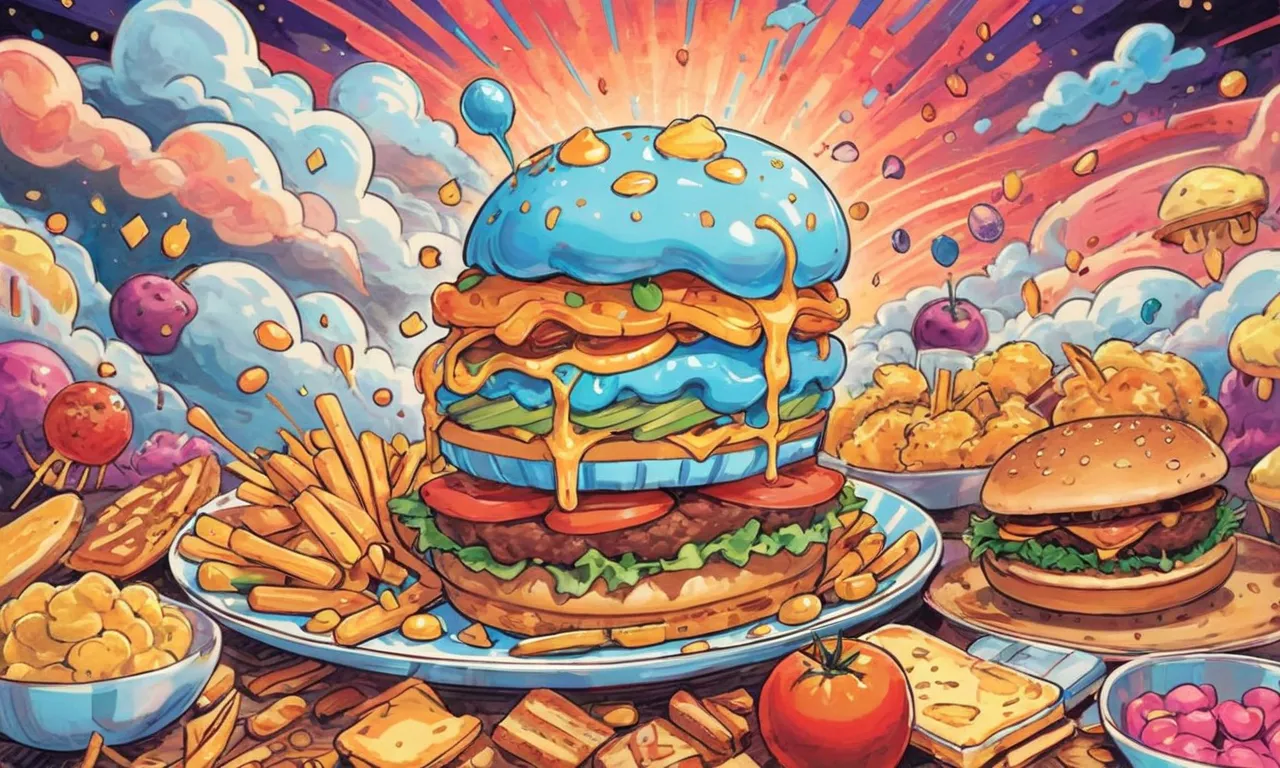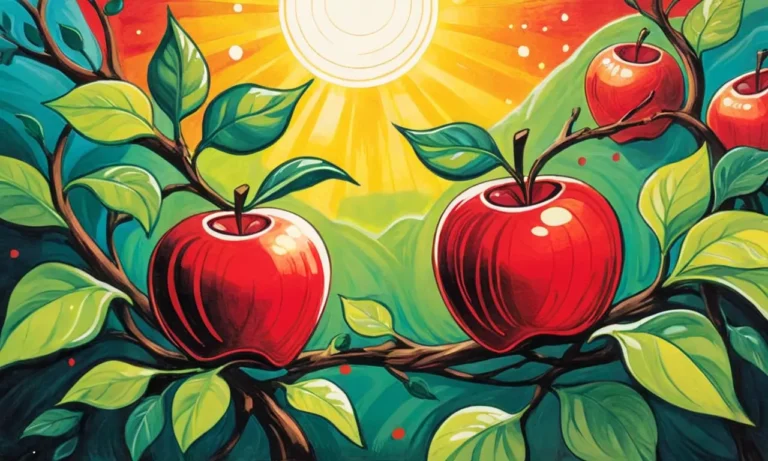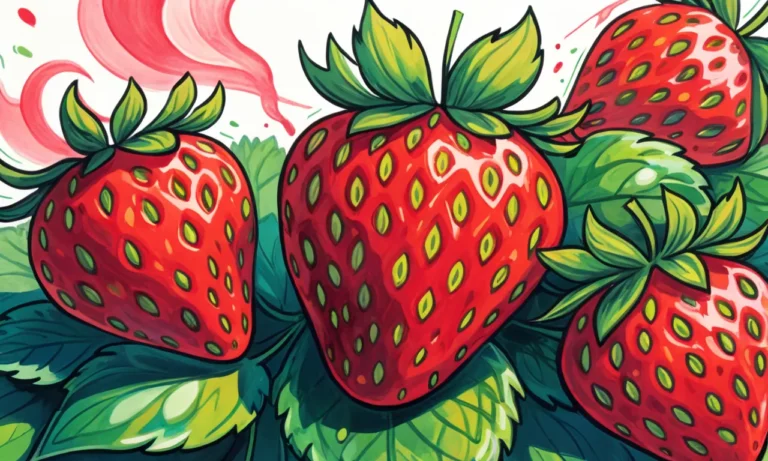The Meaning of Dreams About Eating Food: A Comprehensive Guide
Have you ever woken up from a vivid dream about eating a delicious meal, only to wonder what it could mean? Dreams about eating food are surprisingly common and can hold significant meaning in our subconscious minds. In this comprehensive guide, we’ll explore the fascinating world of food-related dreams and uncover the potential interpretations behind them.
Understanding the Symbolism of Food in Dreams
Before we dive into specific food-related dream scenarios, it’s important to understand the general symbolism of food in dreams. Food often represents:
- Nourishment (physical, emotional, or spiritual)
- Comfort and satisfaction
- Abundance and prosperity
- Social connections and relationships
- Cultural identity and traditions
- Desires and cravings (not necessarily food-related)
When interpreting dreams about eating food, it’s crucial to consider the context, emotions, and specific details of the dream. The type of food, the setting, and your feelings during the dream can all provide valuable clues to its meaning.
Common Food-Related Dream Scenarios and Their Interpretations
Let’s explore some of the most common food-related dream scenarios and their potential meanings:
1. Eating Your Favorite Foods
Dreaming about indulging in your favorite foods often symbolizes pleasure, comfort, and satisfaction in your waking life. It may indicate that you’re feeling content with your current situation or that you’re seeking comfort and familiarity.
2. Eating Unfamiliar or Strange Foods
If you dream about eating foods you’ve never tried or that seem unusual, it could represent:
- Curiosity and openness to new experiences
- Anxiety about upcoming changes or unfamiliar situations
- A desire to broaden your horizons or step out of your comfort zone
3. Overeating or Binge Eating
Dreams about overeating or binge eating might reflect:
- Feelings of guilt or lack of control in your waking life
- Overindulgence in certain aspects of your life (not necessarily food-related)
- Emotional hunger or a need for fulfillment
4. Not Being Able to Eat
Dreaming that you can’t eat or that food keeps disappearing from your plate could indicate:
- Feelings of deprivation or lack in your waking life
- Frustration with unmet needs or desires
- Obstacles preventing you from achieving your goals
5. Preparing Food
If you dream about cooking or preparing food, it might symbolize:
- Nurturing yourself or others
- Creative expression
- Preparation for upcoming events or challenges
The Significance of Different Types of Food in Dreams
The specific types of food you dream about can also hold unique meanings. Here are some common food items and their potential symbolism in dreams:
- Fruits: Often represent abundance, fertility, and temptation. For example, dreaming about tomatoes might symbolize love, passion, or vitality.
- Vegetables: Can symbolize health, growth, and personal development.
- Meat: Often represents primal desires, strength, or aggression. Dreams about raw meat might indicate unprocessed emotions or situations that need to be “digested” mentally.
- Bread: Symbolizes basic needs, comfort, and spiritual nourishment.
- Sweets: Can represent indulgence, rewards, or the need for more sweetness in life. Dreams about ice cream, for instance, might suggest a desire for comfort or nostalgia.
- Spicy Foods: Might indicate passion, excitement, or the need for more “spice” in your life.
- Rotten or Spoiled Food: Could symbolize missed opportunities, negative influences, or aspects of your life that need attention.
Emotional Context and Its Impact on Food Dreams
The emotions you experience during your food-related dreams can provide valuable insights into their meaning. Consider the following emotional contexts:
- Joy and Satisfaction: If you feel happy and content while eating in your dream, it may reflect overall satisfaction with your life or a specific aspect of it.
- Guilt or Shame: Feeling guilty about eating in a dream might indicate unresolved issues or self-doubt in your waking life.
- Fear or Disgust: If you’re afraid of the food or find it disgusting, it could represent fears or anxieties about a situation or relationship in your life.
- Frustration: Feeling frustrated about not being able to eat or finish your meal might symbolize obstacles or challenges you’re facing.
- Excitement: If you’re excited about the food in your dream, it could indicate enthusiasm for new opportunities or experiences in your waking life.
Cultural and Personal Associations with Food
It’s important to remember that the meaning of food in dreams can be highly personal and influenced by cultural factors. Consider your own associations with certain foods and how they might impact your dream interpretations. For example:
- Comfort Foods: Dreams about foods associated with childhood or family traditions might represent a need for emotional comfort or a connection to your roots.
- Cultural Dishes: Dreaming about foods from your cultural background could symbolize a desire to reconnect with your heritage or explore your identity.
- Food Allergies or Aversions: If you dream about eating foods you’re allergic to or strongly dislike, it might represent facing fears or overcoming challenges in your waking life.
The Role of Food Dreams in Personal Growth and Self-Discovery
Food-related dreams can offer valuable insights into our subconscious minds and aid in personal growth. Here are some ways to use these dreams for self-discovery:
- Keep a Dream Journal: Record your food-related dreams and look for patterns or recurring themes.
- Reflect on Your Emotions: Pay attention to how you feel during and after the dream, as emotions can provide important clues to the dream’s meaning.
- Consider Current Life Events: Think about how the dream might relate to your current experiences, challenges, or desires.
- Explore Personal Associations: Reflect on your personal and cultural associations with the foods in your dreams.
- Practice Mindfulness: Use your food dreams as a prompt to be more mindful of your eating habits and relationship with food in your waking life.
Interpreting Food Dreams: A Step-by-Step Guide
To help you make sense of your food-related dreams, follow this step-by-step guide:
- Record the Dream: Write down as many details as you can remember, including the type of food, setting, people present, and your emotions.
- Identify Key Elements: Highlight the most prominent or unusual aspects of the dream.
- Consider Personal Associations: Reflect on your personal experiences and feelings about the foods or situations in the dream.
- Explore Symbolism: Research the general symbolism of the foods and actions in your dream.
- Connect to Waking Life: Look for connections between the dream and your current life circumstances, emotions, or challenges.
- Reflect on Emotions: Consider how the emotions in the dream might relate to your waking life.
- Seek Patterns: If you have recurring food dreams, look for common themes or elements.
- Trust Your Intuition: While guides and symbolism can be helpful, trust your own instincts about what the dream means to you.
When to Seek Professional Help
While most food-related dreams are harmless and can be insightful, sometimes they may indicate underlying issues that require professional attention. Consider seeking help from a therapist or dream analyst if:
- You have persistent, distressing dreams about food that interfere with your sleep or daily life
- Your food dreams are accompanied by symptoms of an eating disorder
- You’re experiencing significant anxiety or obsessive thoughts about food, both in your dreams and waking life
Conclusion
Dreams about eating food can offer fascinating insights into our subconscious minds, emotions, and life experiences. By paying attention to the details of these dreams and reflecting on their potential meanings, we can gain valuable self-awareness and use this knowledge for personal growth.
Remember that dream interpretation is a highly personal process, and the meanings of food dreams can vary greatly from person to person. Trust your intuition and consider your own experiences and emotions when interpreting your dreams.
Whether you’re dreaming of a lavish feast or a simple snack, your food dreams are serving up a buffet of subconscious insights. So the next time you find yourself enjoying a meal in your dreams, take a moment to savor not just the imaginary flavors, but also the rich symbolism and personal meaning behind them.
| Food Type | Common Dream Symbolism |
|---|---|
| Fruits | Abundance, fertility, temptation |
| Vegetables | Health, growth, personal development |
| Meat | Primal desires, strength, aggression |
| Bread | Basic needs, comfort, spiritual nourishment |
| Sweets | Indulgence, rewards, need for sweetness in life |
| Spicy Foods | Passion, excitement, desire for more “spice” in life |
| Rotten Food | Missed opportunities, negative influences, neglected aspects of life |
By exploring the rich symbolism and personal significance of our food-related dreams, we can gain valuable insights into our subconscious minds and use this knowledge for personal growth and self-discovery. So the next time you find yourself enjoying a meal in your dreams, remember to savor not just the imaginary flavors, but also the deeper meanings they might represent.







